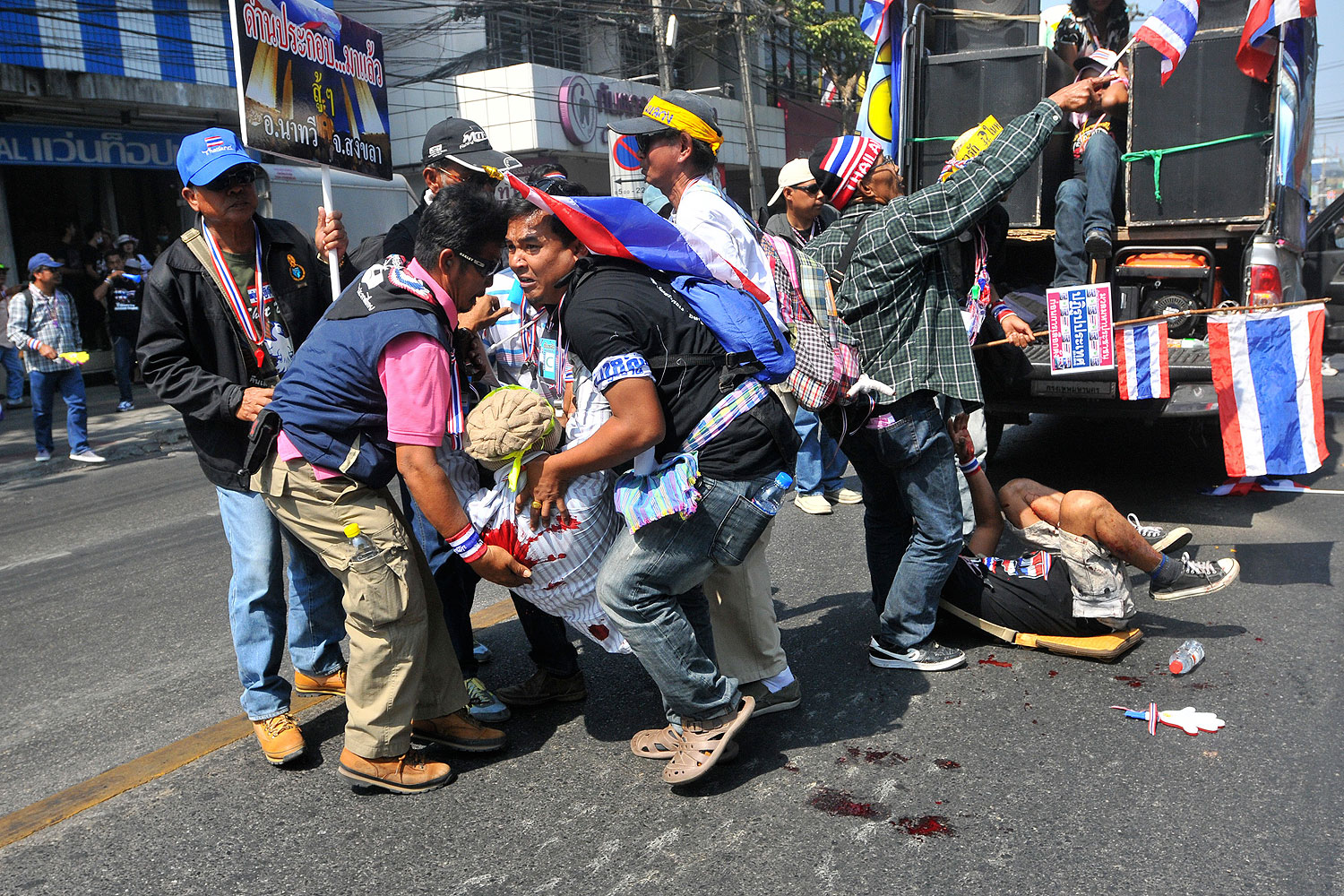
Embattled Thai Prime Minister Yingluck Shinawatra is to be investigated for corruption relating to a controversial rice-pledging scheme, the latest obstacle for the 46-year-old premier who is currently facing mass rallies calling for her removal.
On Thursday, Thailand’s National Anti-Corruption Commission (NACC) confirmed that Yingluck will be among more than a dozen officials probed over a state program that purchased rice from farmers at above market rates. Plummeting global commodity prices means the botched initiative continues to cost the national purse tens of millions of dollars, while vast amounts of the grain lie rotting in warehouses.
“Those who oversaw the scheme knew there were losses but did not put a stop to it,” NACC spokeswoman Vicha Mahakhun told a press conference.
If deemed culpable, Yingluck would be forced to resign and banned from politics for five years.
(MORE: Bangkok Shutdown: Yingluck Supporters Prepare to Fight for Democracy)
According to Napisa Waitoolkiat, lecturer in Thai and Southeast Asian Studies at Payap University in Chiang Mai, the “elite are trying to use either a military or judicial coup to remove the current government.”
The news will certainly be a boost for anti-government protesters, who for almost three months have launched mass rallies aimed at unseating Yingluck. Since Monday, tens of thousands have occupied key intersections of the Thai capital and surrounded government institutions in order to make the country ungovernable.
At around noon on Friday, 28 people were hurt when a grenade was lobbed at a procession led by protest leader Suthep Thaugsuban, who escaped unharmed. Tensions were already rising with shots fired, explosives hurled and late Thursday a photographer was allegedly roughed up by demonstration security personnel.
This escalation may also play into the hands of protesters eager to oust Yingluck, warns Napisa. “My military sources tell me that there is no way there would be a coup unless there were clashes — violence between the two [pro and anti-government] groups,” she says.
Thailand’s opposition claim the rice scheme has helped wealthy farmers and regional officials make political gains at the expense of the poor. Protesters also accuse Yingluck of being a puppet of her brother, former Prime Minister Thaksin Shinawatra, who was ousted in a bloodless military coup in 2006 and now lives in Dubai following his conviction in absentia for abuse of power. The current unrest first flared after the introduction of a now-shelved amnesty bill that would have allowed Thaksin to return home a free man.
(MORE: Thai Opposition Digs In for a Long Protest)
While the Shinawatra clan is popular in the rural northeast of the country, both Yingluck and Thaksin are vehemently despised by royalists and traditional elites of Bangkok and southern provinces. The south’s rubber farmers, too, have no loyalty to the Thaksins, since they do not benefit from state price-fixing despite facing similar global market pressures as rice farmers.
The International Monetary Fund (IMF) called for the curtailing of rice pledging in its annual review of Thailand’s economy published in November. “The staff sees clear merit in replacing the rice pledging scheme with budgetary transfers targeted at low-income agricultural households,” said the IMF report, warning that otherwise overall public debt could rise to 53% of GDP by the end of 2018.
In addition, after missing a payment deadline on Wednesday, Yingluck is facing growing discontent from the rural voters the scheme was supposed to court. The President of the Thai Rice Exporters Association said around $5.2 billion is owed to the farmers.
The latest NACC ruling is just one of several judicial woes for Yingluck. A total of 308 MPs, mostly from her Pheu Thai party, are to be investigated for voting in favor of the amnesty bill after the Constitutional Court ruled the legislation illegal. There are similar legal actions pending over an amendment to allow foreign economic deals without parliamentary approval, and malfeasance regarding catastrophic flooding in 2011.
Yingluck has called snap elections for Feb. 2 to reassert her mandate, but a boycott by the main opposition Democrat Party and disruption by protesters continue to undermine any possibility of an election.
More Must-Reads from TIME
- Cybersecurity Experts Are Sounding the Alarm on DOGE
- Meet the 2025 Women of the Year
- The Harsh Truth About Disability Inclusion
- Why Do More Young Adults Have Cancer?
- Colman Domingo Leads With Radical Love
- How to Get Better at Doing Things Alone
- Michelle Zauner Stares Down the Darkness
Write to Charlie Campbell at charlie.campbell@time.com